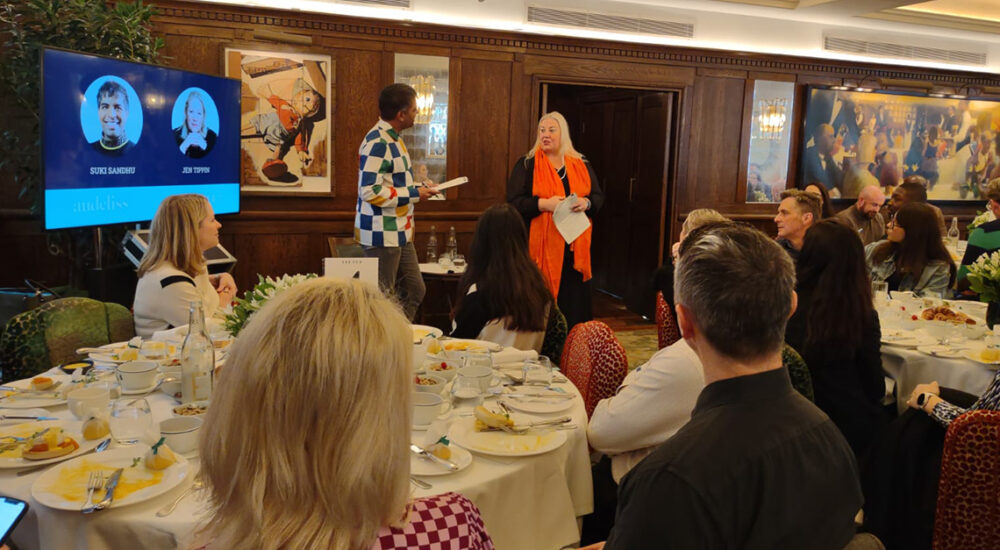Insights from Audeliss and Chapter 2’s TA Leaders Breakfast on Thursday, 29 February.
As the financial year is coming to a close, it’s time to reflect, reframe and refresh some of our current strategies as we take on the new year. At our TA Leaders Breakfast event, we sat down with Jen Tippin, Chief People & Transformation Officer at NatWest Group, to discuss how Employer Branding can drive inclusive hiring and understand how companies can better manage their strategic workforce planning.
Key Takeaways
Employee brand positioning and talent acquisition challenges
The event highlighted the evolving nature of employee branding and its impact on talent acquisition strategies. The discussion emphasised the importance of aligning brand positioning with current market trends and the expectations of the next generation of talent. Candidates are prioritising factors like well-being, purpose, sustainability, and community involvement when considering potential employers. This shift in priorities requires creative approaches to brand positioning, such as partnerships with organisations that embody shared values and purposes.
Challenges in talent acquisition were also discussed, including managing the volume of applicants and providing a positive candidate experience. As digitalisation becomes more prominent in our day-to-day, companies must compete for top talent while stressing aspects of their proposition beyond traditional benefits.
Workforce planning in times of uncertainty
Amidst uncertainty and rapid change, effective workforce planning must be a priority for organisations. Jen highlighted the importance of adaptability and foresight in anticipating future skill requirements and market shifts. While some trends are predictable, such as the growing demand for technical skills in data analytics and engineering, others require a more flexible approach.
Jen noted that successful workforce planning involves not only identifying current skill gaps but also proactively upskilling and reskilling employees to meet future demands. This includes investing in both technical and soft skills, as well as fostering a culture of continuous learning and development.
Balancing hybrid work models and generational expectations
The discussion also touched upon hybrid work and the implications for talent attraction and retention. While flexibility in work arrangements is highly valued, particularly among younger generations, organisations must balance this with the needs of different roles and teams. Jen spoke on the importance of allowing teams to determine their preferred working patterns while maintaining a unified organisational culture.
It is important for companies to embrace digitalisation and automation while also remaining grounded in human-centric values. Technology bridges that gap in facilitating internal mobility, talent marketplace optimisation, and inclusive hiring practices.
Conclusion
The TA Leaders Breakfast event provided valuable insights into the evolving landscape of talent acquisition and workforce planning. It underscored the importance of aligning brand positioning with changing market dynamics and candidate preferences. It also emphasised the need for organisations to adapt to hybrid work while fostering a culture of continuous learning and development. By prioritising employee well-being, purpose, and inclusivity, businesses can position themselves for success in attracting and retaining top talent during uncertainty and rapid change.
